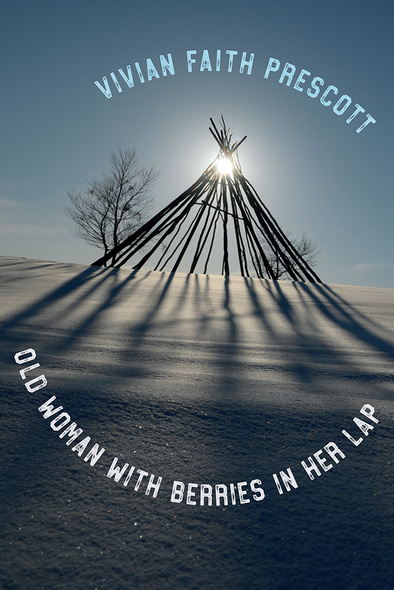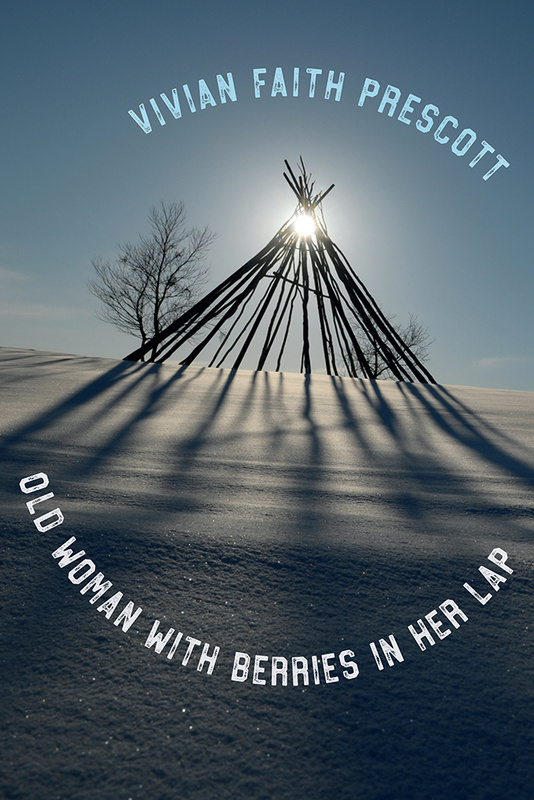Through a single descendant’s voice that speaks to the Sámi diaspora, this collection of poems is a journey through colonialism, transgenerational trauma, and identity. Many have heard of the Sámi reindeer herders brought to Alaska by Sheldon Jackson in the 1800s, but not much is known about the Sámi diaspora experiences in the state and beyond. The poems in Old Woman with Berries in Her Lap use the North Sámi language as well as graphics and various types of poetry to tell these stories of migration and diaspora.
Vivian Faith Prescott’s use of language is both a celebration of the richness of the Sámi languages and a mourning of the loss of language that occurs when a population is displaced and forced to exist in a totally foreign language space. According to Sámilinguist, professor, and politician Ole Henrik Magga, the Sámi languages have “very easily . . . one thousand lexemes with connections to snow, ice, freezing, and melting.” These lexemes frame many of Prescott’s poems, introducing ideas and feelings around the loss of language and culture.
A compelling insight into the Sámi culture from a contemporary poet’s eye, Old Woman with Berries in Her Lap juxtaposes past and present in an act of reclamation.
Vivian Faith Prescott’s use of language is both a celebration of the richness of the Sámi languages and a mourning of the loss of language that occurs when a population is displaced and forced to exist in a totally foreign language space. According to Sámilinguist, professor, and politician Ole Henrik Magga, the Sámi languages have “very easily . . . one thousand lexemes with connections to snow, ice, freezing, and melting.” These lexemes frame many of Prescott’s poems, introducing ideas and feelings around the loss of language and culture.
A compelling insight into the Sámi culture from a contemporary poet’s eye, Old Woman with Berries in Her Lap juxtaposes past and present in an act of reclamation.
'A welcome addition to a dialogue about place, heritage and the identity of people closely connected to seasons and the cycles of all life, who move between worlds.'—Anchorage Daily News
Vivian Faith Prescott is the author of two previous collections, Silty Water People (Cirque Press) and The Hide of My Tongue (Plain View Press), and five chapbooks. Her work appears in numerous journals including Cirque Journal, North American Review, Alaska Quarterly Review, and the Yellow Medicine Review, among others. She is a recipient of the Alaska Literary Award, two Rasmuson Fellowships, and the Jason Wenger Award for Literary Excellence. A member of the Pacific Sámi Searvi, she lives and writes at her family’s fish camp in Wrangell, Alaska.






